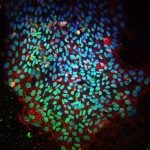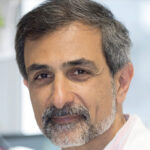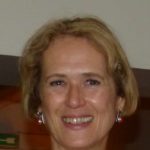Link to Pubmed [PMID] – 29780813
Link to DOI – 10.21037/sci.2018.03.02
Stem Cell Investig 2018 ; 5(): 9
Skeletal muscle stem cells in the adult display heterogeneity that has been functionally linked to their behavior, self-renewal capacity, and resistance to stress in hostile environments. Behavioral heterogeneity emerges also during developmental myogenesis. Muscle stem cell diversity may be functionally linked to the changing needs of skeletal muscle regeneration. Intriguingly, dramatic reduction of stem cell diversity, the “clonal drift”, that implies loss of stem cells and related expansion of clonally related stem cells has been reported for tissue replacement in several adult tissues and suggested in the zebrafish embryo. A recent study shows clonal drift of muscle stem cells in the zebrafish embryo caused by inhibition of the cell cycle and directed by the homeobox protein Meox1. Although stem cell quiescence is associated with inhibition of the transition phase G0/G1 of the cell cycle, Meox1 triggers the muscle stem cell fate by an arrest in G2 phase. Why efficient muscle growth in the zebrafish embryo requires sacrificing stem cell heterogeneity in favor of a small number of dominant clones has not been elucidated. The significance of G2-halted stem cells, which are generally associated with robust regeneration capacity, is also intriguing. These processes are relevant for understanding organ growth and the mechanisms that govern stem cell quiescence.



